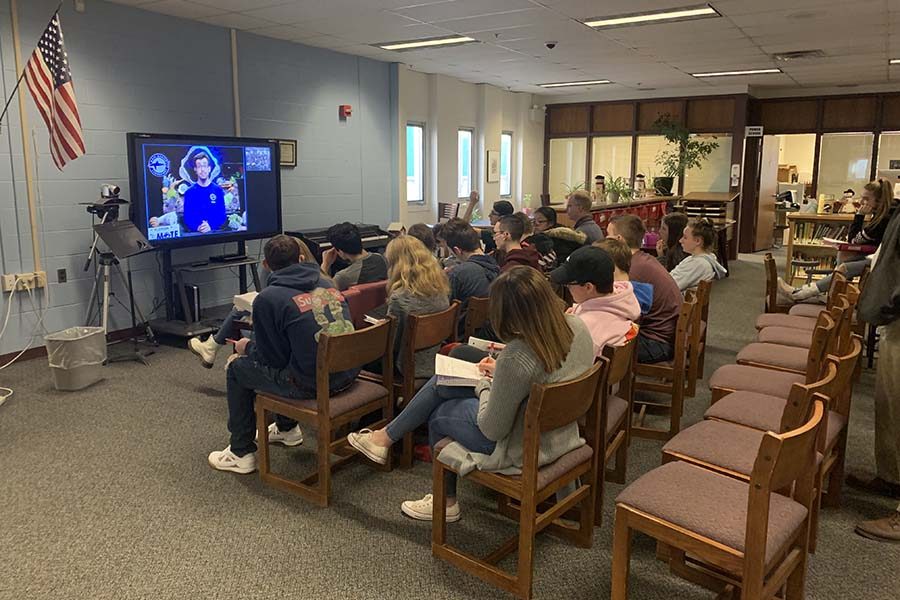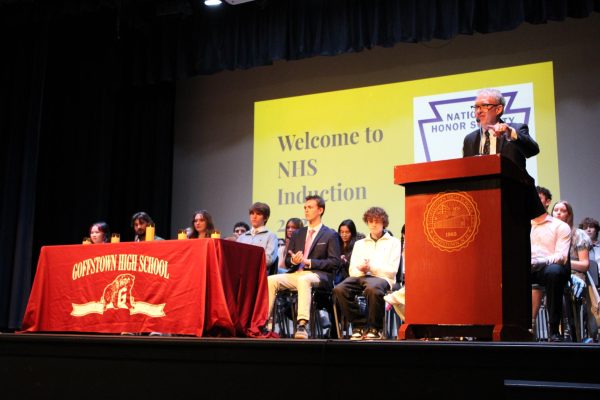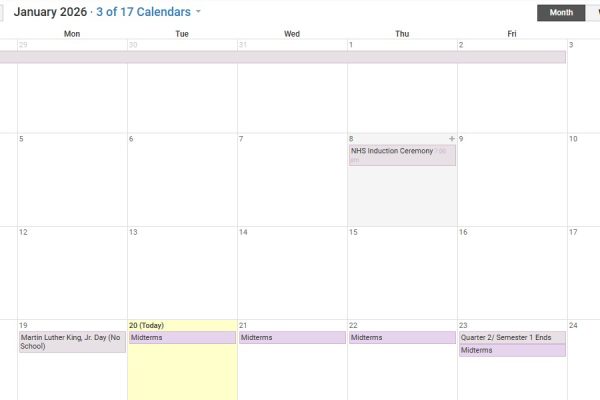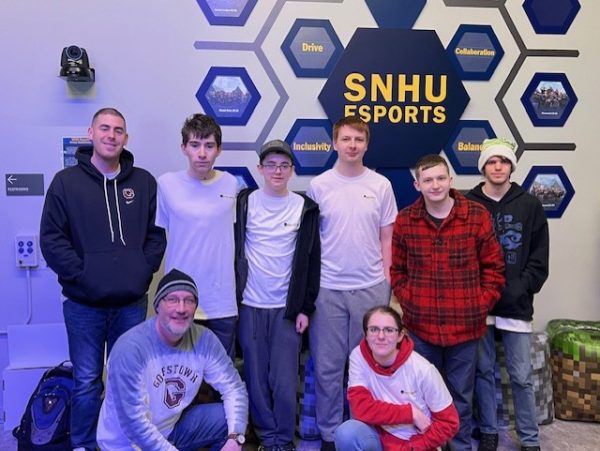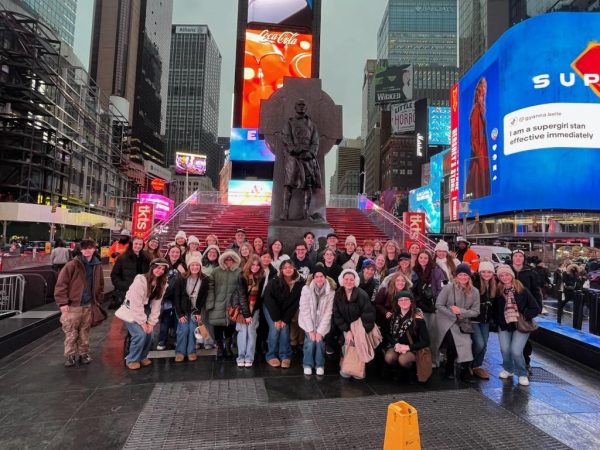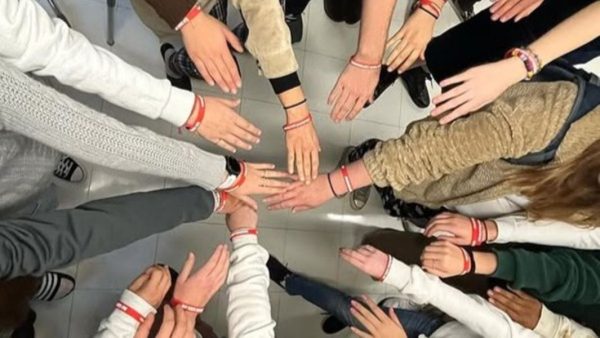Video Conferencing With Florida
During Quarter 2, Mrs. Welsh’s Biology students completed their Marine Biology projects. The Marine Bio project is a research paper using proper research methods with evidence based reasoning explaining how biotic (living) and abiotic (nonliving) factors affect a marine organism of the student’s choosing.
On Monday, January 7th and Tuesday, January 8th, those students participated in a video conference with Mote Marine Laboratories from Sarasota, Florida. They took notes during the video conference to apply what they learned to their Marine Biology projects. Topics that Mote Marine Laboratories covered were shark ray conservation, ocean acidification, environmental toxicology and marine biomedical engineering. Mote Marine houses animals such as turtles, dolphins, manatees, and different species of fish. Mrs. Welsh got the idea for this last year when Mr. Girolimon approached her asking if she was interested in using the new video conferencing software he had installed for the school. He had read something about Mote Marine and they both looked into it last year and tested it out.
“I definitely would do this again,” says Mrs. Welsh. “I think students got a lot out of it.” The only thing she would change about it is doing the video conference before they start the marine bio projects to give students “more context and a better understanding for forming essential questions” for their projects.
The biggest takeaway for students was how humans impact the ecosystem and how both citizens and researchers can help the environment. Students can help by decreasing their carbon footprint, by using less resources and causing less pollution. They learned about how oil spills, plastics, and the toxins contained in them affect the environment. The toxins float to the surface and cause red tide, a harmful algal bloom and floating plants. This causes the marine animals to get itchy throats and get sick. This can also affect humans living in the area.
Students enjoyed the video conference. “The work [Mote Marine Aquarium does] is pretty neat” exclaimed one of Mrs. Welsh’s students. They also enjoyed talking to Ross, a researcher at Mote Marine. They said he was “energetic” and “positive”. “He knew what he was talking about,” explained Joe from Mrs. Welsh’s period four biology class. Phil Molica says that overall it was “a positive experience where much was learned about whales and bio-accumulation”.
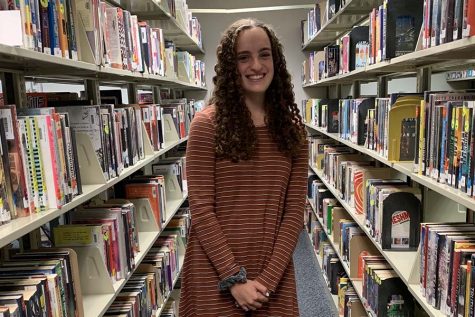
Julia Gentili is 18 and a senior at GHS. She enjoys taking science and art classes at school. She also volunteers for Special Olympics. During her free...



